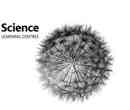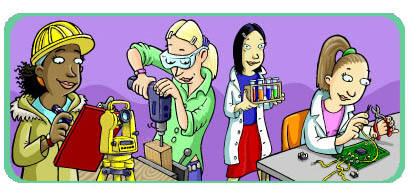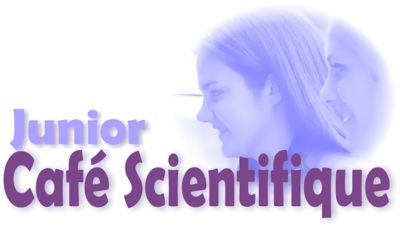|
|
Connecting Science is a social network for scientists and science
students who want to inspire non-specialists about their work.
You will find like-minded people who can offer moral support and exchange
ideas and experiences of performing all kinds of outreach. Itís a place to
find resources and information about funding, outreach opportunities and
training. There are regular updates on science communication news, the
chance to debate and ask questions and tell people about events.
Join in, and become part of a grand tradition of scientists from Faraday to
Feynman, who saw the benefits of sharing science and its wonders with the
wider community.
|
|
|
Walking with robots A
network of robotics researchers (currently drawn from eight UK universities)
experts in public engagement and experts in outreach with robots. Their goal
is to develop a three-year programme of events engaging the public with the
realities of current robotic research and to build relationships within the
relevant communities.
|
|
 |
New Economics Foundation -
Democs
for schools
Democs
(deliberative meeting of citizens) is part card game, part policy-making
tool, enabling students to engage with complex public policy issues. It
helps students find out about a topic, express their views, seek common
ground and decide on their position.
Subjects covered include: (KS3) animal
experimentation, vaccination and climate change; (KS4) neuroscience,
stem cell research and GM food.
To fnd out more or download a copy of the games,
visit the
NEF site.
|
|
|
|
|

National Endowment for Science, Technology and the Arts |
 |
|
|
Planet Science
A unique website designed to engage young people with
science - as well as teachers and parents. The site contains
free games, resources and ideas for everyone.
www.planet-science.com. NESTA Futurelab
Based in Bristol, NESTA Futurelab brings together the
creative, technical and educational communities to pioneer new
ways of using new technologies to transform the learning
experience. For a showcase of their latest work and research go
to
www.nestafuturelab.org. Ignite!
This project supports the personal development of
exceptionally creative young people aged between 10 and 21 years
old. Take a look at
www.nesta.org.uk/ignite for the latest thoughts on
creativity in young people, and a range of activities and games.
Crucible aims to enhance and inform the
creativity of early career scientists from across
science, technology, engineering, medicine and science
policy by encouraging them to think about their work in
relation to society, the media, politics, globalisation
and creativity.
www.nesta.org.uk/crucible |
 |
|
|
| |
|
|
|
|
|
|

The British Association for the Advancement of Science -
dedicated to
connecting science with people. |
 |
|
|
Science
Communicators awards help students to develop
a broader understanding of the role of science and technology in
today's society and the ability to communicate relevant issues
in an informed and confident way.
Helping to organise a cafe scientifique is an
activity eligible for consideration toward a Science
Communicator Award. For more information, download the
BA's information sheet
here
(Word document). |
 |
|
|
| |
|
|
|
|
|
|
|
|
|
|
|
|
|
|
|
|
 |
The national network of
Science Learning Centres
offers high quality continuing professional development for
everyone involved in the teaching of science in primary and
secondary schools and FE colleges.
|
|
|
| |
|
|
|
|
|
|
 |
Let's Talk
A regional website for girls in West Yorkshire
and Humberside who are interested in Science, Engineering,
Construction or Technology as career choices. |
 |
|
|
|
|
|
|
Talking Point
|
A BBC Online article from
2001, which addresses the question "Should schools be teaching
the ethics of science?"
Read it
here. |
|
|
| |
|
|
|
|
|
 |
Science in School is a new
European journal to promote inspiring science teaching. It
covers biology, physics, chemistry, maths and earth sciences,
highlighting the best in teaching and cutting-edge research, and
focusing on interdisciplinary work.
Science in School
is freely available. Online articles are published in
many European languages; a print version is distributed in
English. |
|
|
| |
|
|
|
|
|

